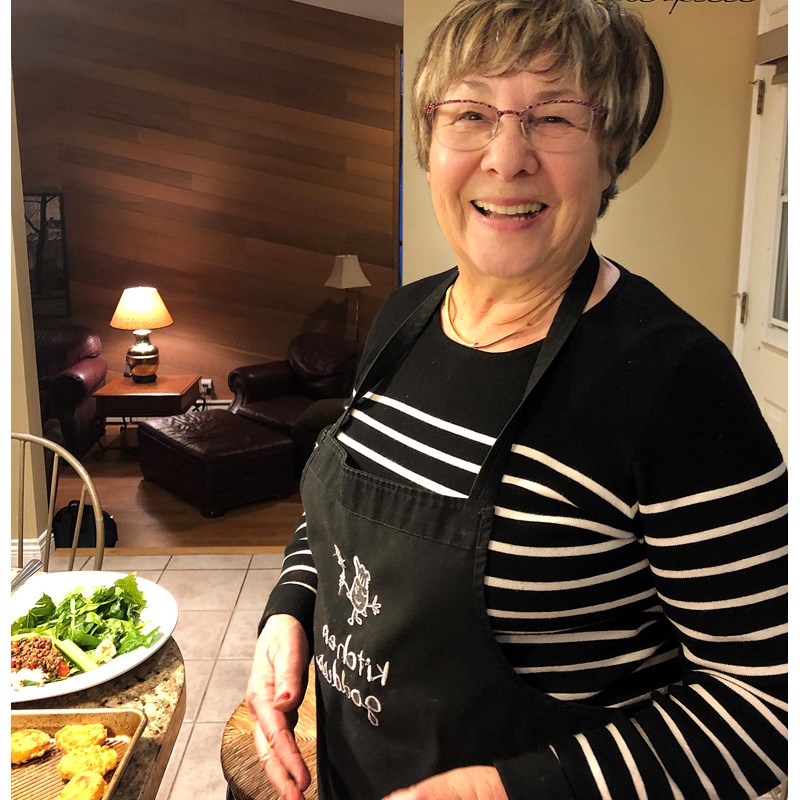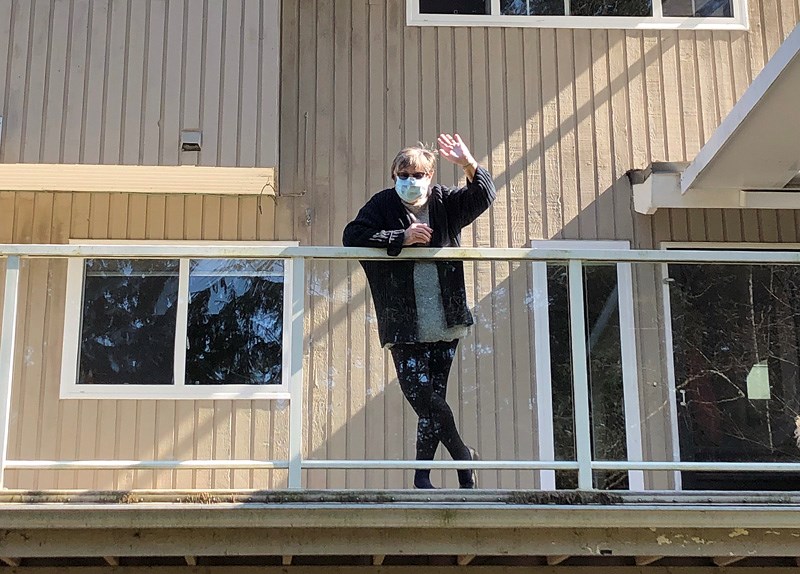How have you been affected by the coronavirus outbreak? We want to hear your questions, stories and concerns. Here’s how you can get in touch.
Karen Shoemaker loves to travel, but when a bout of the flu turned out to be COVID-19, the 74-year-old grandmother had to re-think her priorities.
Staying close to family is now more important than ever after spending weeks in quarantine and having to be satisfied with waving to her grand kids from her balcony instead of hugging them.
“They are a big part of my life,” admitted the Port Moody woman, but how and where she caught COVID-19 is still a bit of a mystery.
Shoemaker believes she came in contact with the virus sometime in early March after coming home in February from an aborted cruise to the Caribbean and then visiting Bellingham a few times to run errands.
But it took nearly a week to confirm the disease after a swab was taken by a doctor at a Coquitlam medical clinic March 11, and by then Shoemaker, a retired Burnaby school principal, was already in hospital, with a fever, a bad cough and difficulty breathing.
“Six days I waited [for the test result],” she said. “Imagine the stress.”
For Shoemaker, who turned 74 years old while she was at Eagle Ridge Hospital in Port Moody, the worry and anxiety over possibly contaminating others with the virus was her main concern.
Fortunately, when Fraser Health public health nurses scoured her phone for contacts and called everybody, it turned out no-one else was exhibiting symptoms.
“It just reinforces the story you’re hearing over and over again, which is stay at home because you don’t know whether or not you have the symptoms, whether or not you are carrying the virus and, without ever intending to, you could be infecting all sorts of people.”
Shoemaker’s symptoms gradually set in, but it was hard to distinguish them from a cold. It wasn’t until she lost her sense of taste and smell and couldn’t stop coughing that she started to worry.
At the recommendation of an 811 nurse, she was swabbed at a Coquitlam clinic, but when the normally robust woman started to feel weak from not eating, she called 911 for an ambulance.
Since she was ambulatory, paramedics recommended her husband drive her to ERH because if they took her it meant they would have to deep clean the vehicle, which would slow their response to the next case.

After donning masks, the two headed to the local hospital, where upon arriving, Friday, March 13, Shoemaker was put in a bed in a children’s room off of the emergency ward so she could be in isolation. From there she was taken to the Intensive Care Unit where she was again isolated, given oxygen for awhile, and, where alone and afraid, she sank into depression.
“You are closed off and nobody can come in unless they are completely gowned up so nobody wants to come into your room,” she said.
It was a harrowing experience, Shoemaker now admits, because she had no idea if she would get better or worse — live or die — and knowing that people younger than her, including a North Vancouver dentist, had succumbed to the respiratory illness, made the wait for her COVID-19 test all the more frightening.
Thankfully her daughter Kristi Blakeway, a former Dr. Charles Best teacher who is now a Maple Ridge school principal, was able to bring some personal items that provided Shoemaker with a link to home.
Six days after first being swabbed and a second test at ERH, Shoemaker learned that she did indeed have the disease that is spreading across the globe.
Fortunately, her symptoms were mild enough to let her go home to recover, but those first few days of not-knowing and worrying may have changed her life. And, as one of B.C.’s fewer than 1,500 cases, her story is both remarkable and illustrative. What’s more her husband, Mike, never caught the disease, making it a somewhat random menace, she added.
Her experience sheds light on how people might contract the disease, what it feels like to get it and how it can upset one’s life.
“It’s the unknown, it’s the unpredictability,” Shoemaker acknowledges.
Now that she’s clear of the disease, she is ready to provide advice to others to stay home to avoid catching the disease, and if it will help, she’ll provide her blood with its immunity-rich antibodies to help others in the fight against the global pandemic.
“Of course why wouldn’t you, if it’s gong to help,” she said.
As for future trips, Shoemaker is staying home for now and will wait until travel and cruise companies have systems in place to protect passengers before she’ll make any more plans.
“The thing is you don’t know, even if you have a bad cough like I had, you just don’t know and it’s just unconscionable to be out there among the living if you don’t need to be. If your symptoms get worse go to the hospital.”
Read more of our COVID-19 coverage here.



